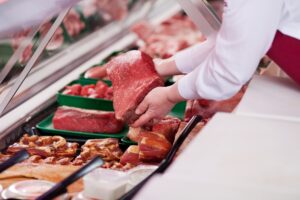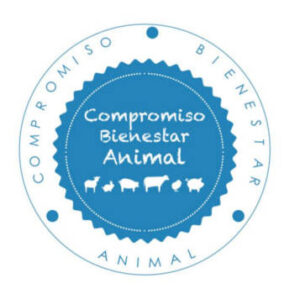14/04/2021
The meat sector ranks first in the entire food and beverage industry in Spain, with a turnover of more than € 26,800 million, which is equivalent to 22.5% of this entire sector at the national level. These data represent 2.4% of the total Spanish GDP, generating direct employment for more than 97,000 workers, that is, almost 24% of the total occupation of the Spanish food industry. In addition, this industry was able to export in the last year 2020, products for more than € 8,680 million, with a significant participation of SMEs within the more than 3,000 companies that make up its industrial fabric, especially in rural areas.
The dynamism of this sector has recently been shown with the design and elaboration of a large-scale tractor project that is intended to form part of the National Recovery, Transformation and Resilience Plan, which the Government of Spain plans to present in Brussels before 30 of this month for its approval and financing through the funds of the European Recovery Instrument-Next Generation EU 2021-2026. This proposal supports the interest of the sector to guarantee its competitiveness and recovery after the health crisis of Covid-19 and the economic crisis generated, to maintain its position as the fourth industrial sector in our country, after the automobile industry, the oil industry and energy production and distribution.

The tractor group is made up of 21 industries, among which are Vall Companys, Grupo Fuertes (El Pozo), Campofrío, Grupo Jorge, Uvesa, Coren or Covap, which encompass all the productions of its value chain: primary production, slaughterhouses , cutting rooms and processed industries. This group of actors have selected two top-level technology providers in Spain as travel companions in this initiative, such as Hispasat and Telefónica. Both will offer their experience and capabilities to be able to extend digital satellite coverage to any livestock farmer or small industry located in remote areas, facilitating their access to quality broadband and 5G and providing, in the case of Telefónica, its fiber coverage for bring that 5G to any corner of our geography, in addition to its technology in robotization, data management and artificial intelligence.

In terms of sustainability, the tractor project, drawn up with a budget of more than € 3,500 million, 50% co-financed by public and private initiative, includes the intention of adhering to the European Green Pact, reducing plastics by 25% from a only use and enhance the supply of energy from renewable sources, reaching 70% in three years. The fight against climate change is also included in this initiative and, to reduce its carbon footprint, it proposes to reduce emissions by 15% for the livestock sector and 30% for the meat industry.
The expression of interest has been initially promoted by the main Spanish meat interprofessionals (Interporc, Asici, Interovic, Provacuno, Intercun y Avianza). These entities developed an initial dossier with 10 commitments focused on sustainability and the digitization of the meat-livestock value chain to materialize them in three years (2021-2023).
It should be noted that the initiative also establishes the need to continue promoting animal welfare strategies, to extend during 2021 the implementation of certificates as the Animal Welfare Commitment.

